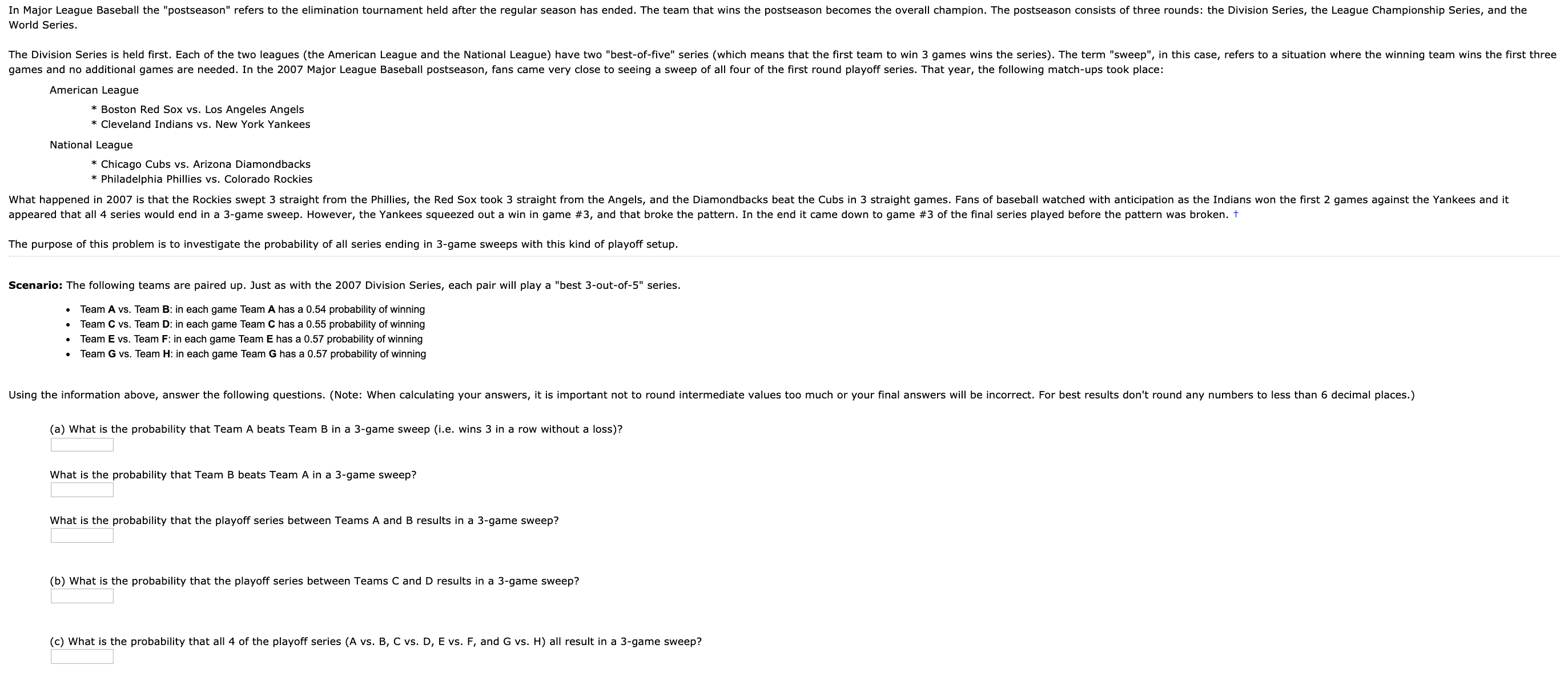Can someone help me figure this out?? I am confused....
in Major League Baseball the "postseason" refers to the elimination tournament held after the regular season has ended. The team that wins the postseason becomes the overall champion. The postseason consists of three rounds: the Division series, the League championship series, and the World Series. The Division Series is held first. each of the two leagues (the American League and the National League) have two "best-of-ve" series (which means that the rst team to win 3 games wins the serles). The term "sweep", in this case, refers to a situation where the winning team wins the first three games and no additional games are needed. in the 2007 Major League Baseball postseason, fans came very close to seeing a sweep of all four of the first round playoff series. That year, the following match-ups took place: American League * Boston Red sox vs. Los Angeles Angels * Cleveland indians vs. New York Yankees National League * Chicago Cubs Vs. Arizona Diamondbacks * Phlladelphla Phlllles vs. CDInrado Rockles What happened in 2007 is that the Rockies swept 3 straight from the Phillies, the Red Sox took 3 straight from the Angels, and the Diamondbacks beat the Cubs in 3 straight games Fans of baseball watched with anticipation as the Indians won the rst 2 games against the Yankees and it appeared that all 4 series would end in a 3-game sweep. However, the Yankees Squeezed out a win in game *3, and that broke the pattern. In the end it came down to game #3 of the nal series played before the pattern was broken. l The purpose of this problem is to investigate the probability of all series ending in 3-game sweeps with this kind of playoff setup. Scenario: The following teams are paired up. Just as with the 2007 Division Series, each pair will play a "best 3-out-of-s" series. . Team A vs. Team . Team I: vs. Team a Team E vs. Team . Team G vs. Team each game Team A has a 0.54 probability ofwinning each game Team a has a 0.55 probability of winning in each game Team 5 has a 0.57 piobabliny oiwinnlng each game Team G has a 0.51 probability ol winning Using the information above, answer the following questions. (Note: when calculating your answers, it is important not to round intermediate values too much or your nal answers will be incorreu. For best results don't round any numbers to less than a decimal places.) (a) what is the probability that Team A beats Team B in a 3-game sweep (i.e. wins 3 In a row without a loss)? what is the probability that Team B beats Team A in a 3-game sweep? What is the probability that the playoff series between Teams A and B results in a 3-game sweep? (b) what is the probability that the playoff series between Teams c and D results in a 3-game sweep? (c) What is the probability that all 4 of the playoff series (A vs. a, c vs. D, e vs. F, and e vs. H) all result in e 3-game sweep







